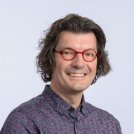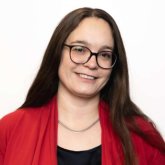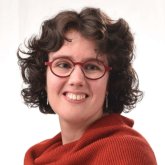Postdoc position on Operations Research methods for multi-appointment planning
Within the EEMCS-SOR group, you will develop Operations Research methods for multi-appointment planning to schedule sequences of appointments over time considering multiple resources. Your planning environment will be inspired by patient planning in healthcare as well as by the planning of hearings in the legal system while collaborating with stakeholders in the legal domain.
Appointment planning in healthcare and the legal system show great similarity: both settings have random arrivals of jobs (patients or legal cases), and, often, for each job a series of tasks with random duration to be executed at different points in time by different sets of servers.
Building on our considerable expertise in healthcare, this project aims to extend Operations Research methods for multi-appointment planning in a random environment inspired by both healthcare and the legal system. This will offer the opportunity to explore the uncharted territory of optimizing planning in the legal system, starting from a sound basis of Operations Research methods developed for the healthcare system.
You will develop Operations Research models and data-driven decision rules for multi-appointment planning. Typically, you will work in a Markov decision framework, developing tools in approximate dynamic programming, stochastic programming, and reinforcement learning.
You will have the opportunity to implement your decision rules in prototype decision support systems to facilitate their further development towards real-life use in the Dutch legal system.
Information and application
Are you interested in this position? Please send your application via the 'Apply now' button below before February 1, 2025, and include:
* A cover letter (maximum 2 pages A4) emphasizing your specific interest, qualifications, and motivations to apply for this position.
* A Curriculum Vitae, including a list of publications, research motivation and references.
* A copy of your PhD thesis or, if it is not yet available, an outline and summary of your thesis.
* An IELTS-test, Internet TOEFL test (TOEFL-iBT), or a Cambridge CAE-C (CPE). Applicants with a non-Dutch qualification and who have not had secondary and tertiary education in English can only be admitted with an IELTS-test showing a total band score of at least 6.5, internet. TOEFL test (TOEFL-iBT) showing a score of at least 90, or a Cambridge CAE-C (CPE).
For more information regarding this position, you are welcome to contact Richard Boucherie via the following email address: r.j.boucherie@utwente.nl.
About the department
The position will be in the Applied Mathematics department. The Applied Mathematics department has an active research portfolio in stochastic operations research, algorithmic discrete mathematics, complex networks, statistics, systems theory, computational science, and artificial intelligence with applications in health care, energy systems, traffic, and imaging. Find out more information about the groups here: MOR, SACS and MDS.
Our research group, Stochastic Operations Research (SOR), conducts mathematical education and research of internationally high standards in the areas of stochastic processes and mathematics of operations research to contribute to the development of mathematics in a multidisciplinary engineering environment and contribute to a better understanding and functioning of our increasingly complex society. Find out more about the SOR group here.
Your project will also be embedded in the inter-faculty research team CHOIR (Centre for Healthcare Operations Improvement and Research). CHOIR is a research center within the UT that focuses on Operations Research methods for Healthcare Logistics, such as multi-appointment scheduling, surgery scheduling, and resource allocation in times of scarce healthcare capacity. CHOIR is one of the most active and productive research groups in the field of Operations Research and Management in Healthcare. Find out more about the CHOIR group here.
About the organisation
The faculty of Electrical Engineering, Mathematics and Computer Science (EEMCS) uses mathematics, electronics and computer technology to contribute to the development of Information and Communication Technology (ICT). With ICT present in almost every device and product we use nowadays, we embrace our role as contributors to a broad range of societal activities and as pioneers of tomorrow's digital society. As part of a people-first tech university that aims to shape society, individuals and connections, our faculty works together intensively with industrial partners and researchers in the Netherlands and abroad, and conducts extensive research for external commissioning parties and funders. Our research has a high profile both in the Netherlands and internationally. It has been accommodated in three multidisciplinary UT research institutes: Mesa+ Institute, TechMed Centre and Digital Society Institute.




